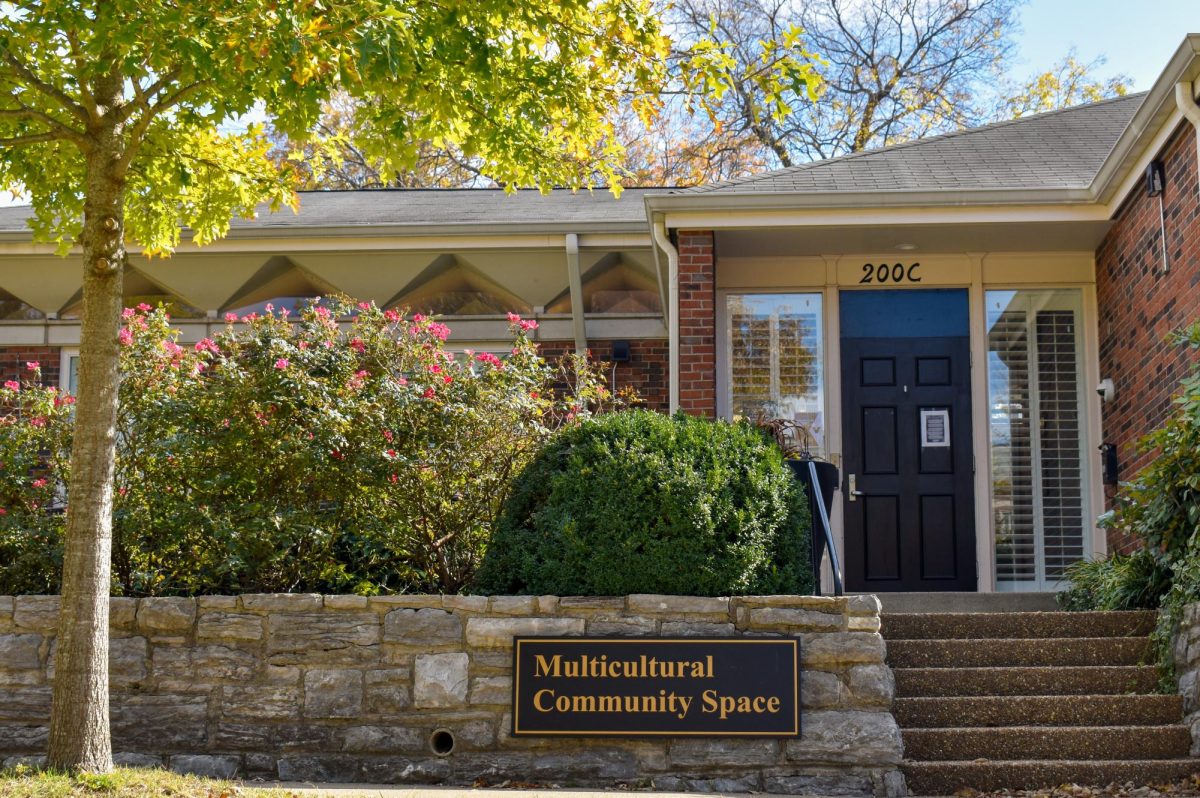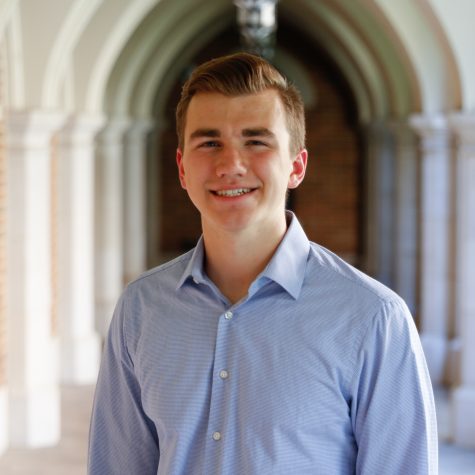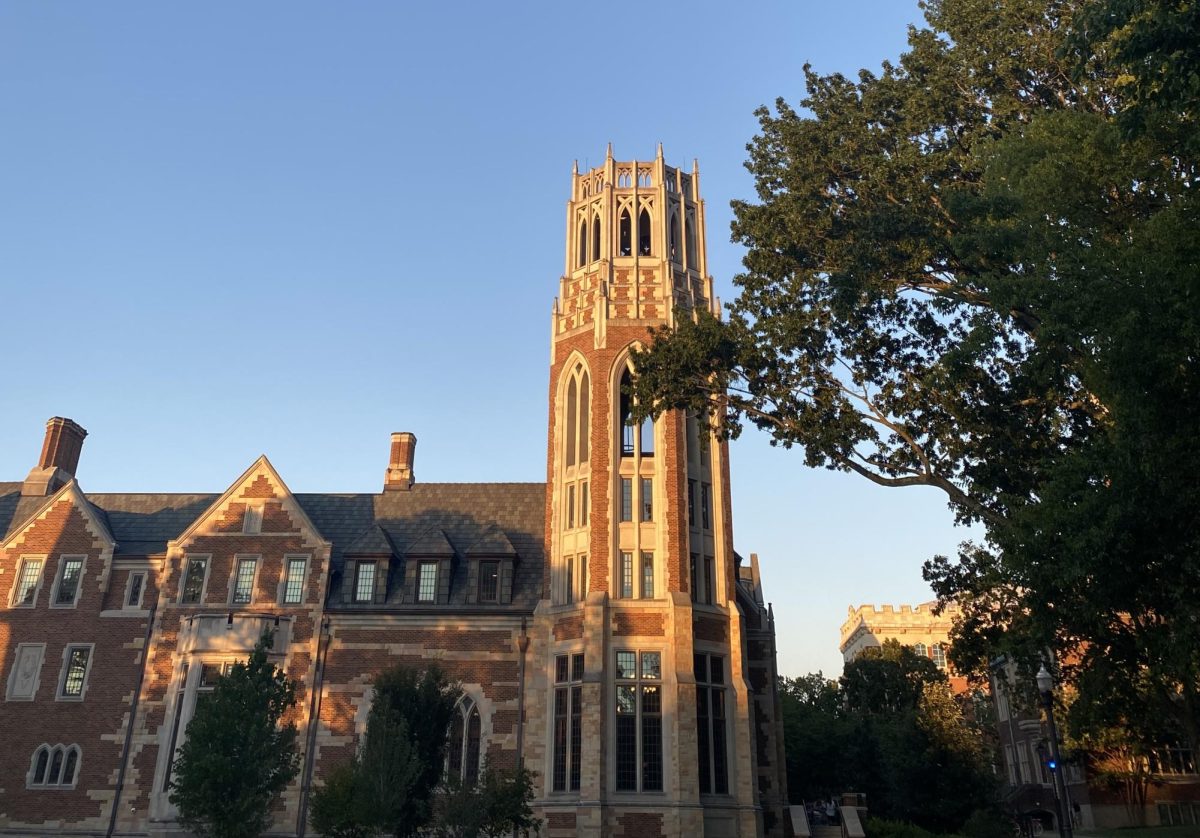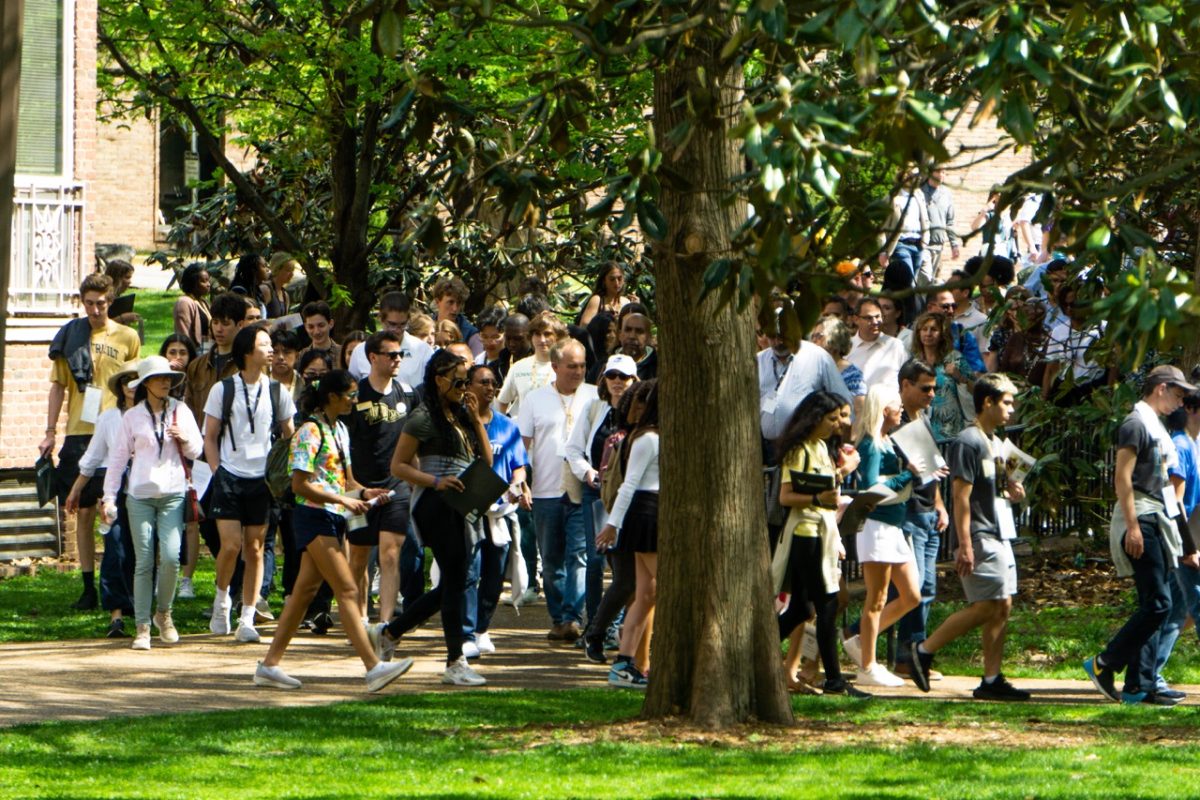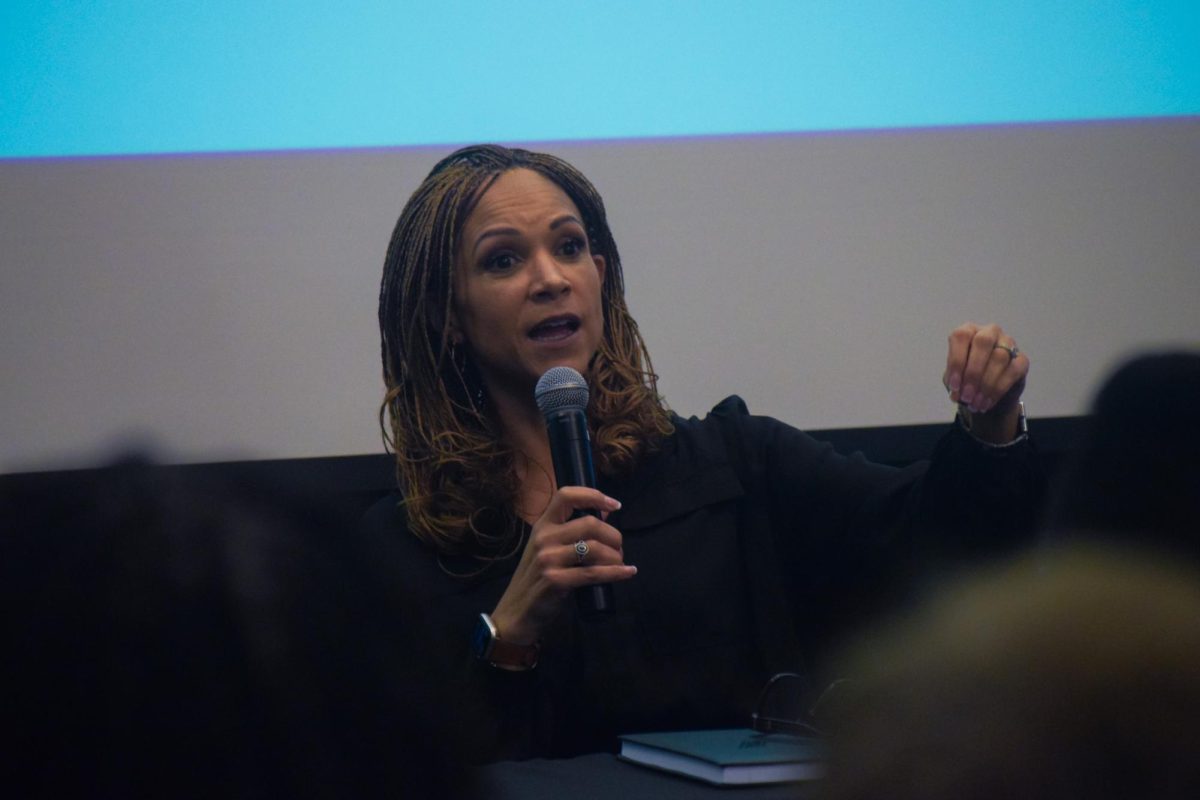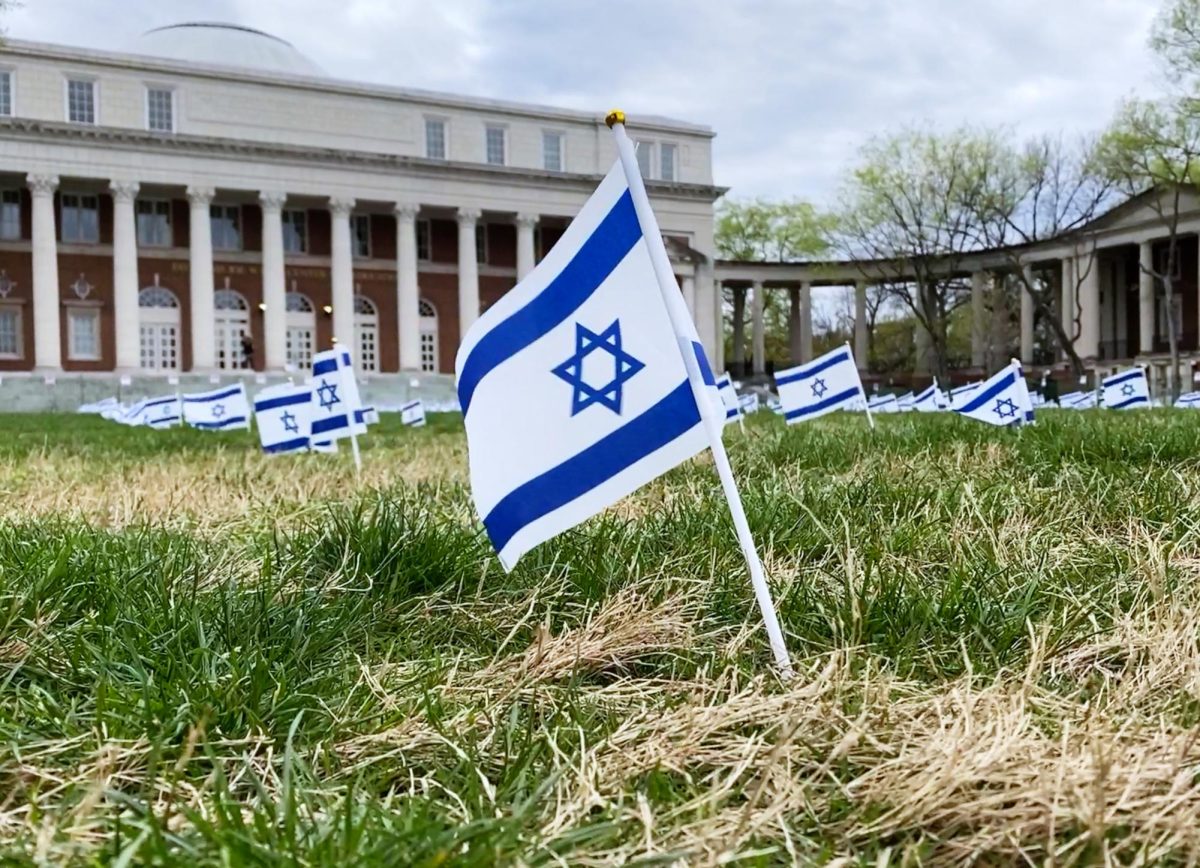Members of the Vanderbilt community reacted with disappointment, concerns and optimism to the U.S. Supreme Court ruling on June 29 that declared race-based affirmative action unconstitutional. Vanderbilt previously “considered” race in its admissions process.
Vanderbilt’s Office of Undergraduate Admissions declined to comment to The Hustler on how the university plans to change its admissions process in the future. In a statement to the community, Diermeier said he was “deeply disappointed” by the Court’s decision because he believes it makes it harder for colleges to achieve a dynamic campus environment. Vanderbilt’s 2022-23 student body is its most racially diverse undergraduate population in school history.
“Vanderbilt will fully comply with the law as it relates to the Supreme Court’s decision,” Diermeier said. “We are steadfast in our commitment to nurturing a diverse academic community in which we can prepare leaders with the tools, perspectives and experience they need to engage with the world and its complexities.”
In a June 29 message to The Hustler, Diermeier said that taking this political stance is consistent with Vanderbilt’s approach to principled neutrality because the ruling directly impacts the functioning of the university.
Student reactions
Senior Trinity Williams, lead advocacy chair of the Vanderbilt Multicultural Leadership Council, said she is concerned about the potential effect of not considering race in college admissions.
“The recent ruling by the U.S. Supreme Court in this case is disheartening and paints a bleak picture for the future of this country,” Williams said. “This attempt at race neutrality, reminiscent of ‘separate but equal,’ will only deepen the racial inequities that have historically existed and continue to persist today.”
Senior Ray Kongmanychanh, MLC senior advisor, echoed Williams’s sentiment, stating that students from disadvantaged groups face many challenges in their K-12 education and may not stack up on paper to their more privileged peers as a result.
“The unconscious biases of teachers, peers, coaches and more inform the type of support they [students] receive that will forward their success, their resume, their application when applying to college,” Kongmanychanh said. “What the law fails to see are the past experiences of students that informed affirmative action, and our next steps as a nation need to take a more holistic view on how we can support marginalized learners.”
The student co-chairs of MOSAIC declined to comment, instead referring The Hustler to the Office of Undergraduate Admissions. MOSAIC is a recruitment program through which around 200 admitted Vanderbilt students from diverse backgrounds are invited to attend a weekend program on campus before the May 1 commitment deadline. It is unclear how the program will operate to the same extent going forward.
Vanderbilt’s political student groups also weighed in after the ruling. Senior Chase Mandell, president of Vanderbilt College Democrats, emphasized the need for continued diversity initiatives at Vanderbilt amid the ruling.
“VCD unabashedly condemns the ruling, overturning 45 years of precedent,” Mandell said. “Vanderbilt Democrats call on the university to institute policies, in legal compliance with the decision, to continue to sustain our diverse student body.”
On the other hand, senior Arthur Hahn, vice president of Vanderbilt College Republicans, agreed with the Court’s decision. He stated that, while diversity in higher education is a “worthwhile goal,” focusing on race in admissions is not the right avenue to pursue it. Instead, Hahn suggested that emphasis on the socioeconomic status of applicants, i.e. being “need-aware,” is a better alternative to race as a factor in college admissions.
“Obviously, students in economically depressed areas face significant challenges that are not present among wealthier students,” Hahn said. “This focus on socioeconomic status would achieve, to some degree, the racial diversity we see today at Vanderbilt.”
Hahn noted an apparent tension between a potential focus on socioeconomic status and Vanderbilt’s current practice of considering the legacy status of applicants.
“I’d imagine that, from the university’s perspective, [focus on socioeconomic status] would be problematic as this would force the school to give applicants of all races consideration for socioeconomic class,” Hahn said. “This would likely reduce the average wealth of a Vanderbilt student which the university, in part, relies on for its financial support. Additionally, it might reduce space for wealthy legacy students, who not only need less financial aid, but also likely donate at higher rates and in greater amounts.”
Faculty reactions
Explaining the decision’s significance in the context of constitutional law, Vanderbilt Law School professor Brian Fitzpatrick said the Court’s ruling only reinforces the Fourteenth Amendment, rather than changing its interpretation.
“The Court reiterated yet again that the Constitution guarantees equal treatment for all races, and exceptions to that rule should be rare and fleeting,” Fitzpatrick said. “But the Court certainly cracks down more than in the past on vague, unanalytical and poorly reasoned considerations of skin color.”
Fitzpatrick said he does not think universities can legally continue to place importance on racial identity in admissions in any way, such as via information in student-submitted essays.
“I am sure [universities] will give it a try by looking for loopholes and workarounds,” Fitzpatrick said. “It is important to note, however, at the end of its decision, the Court was clear that these workarounds will be illegal as well.”
While noting that colleges can consider “an applicant’s discussion of how race affected his or her life,” Chief Justice Roberts wrote in the Court’s majority opinion that “universities may not simply establish through application essays or other means the regime we hold unlawful today.”
Dr. Carrie Russell, assistant dean of undergraduate education of the College of Arts & Science and pre-law advisor, stated that any understanding of race should be rooted in the legacy of slavery and segregation.
“When ‘we the people’ lose sight of that fact, or pretend it is ancient history ready to be relegated to ‘the past,’ we risk accepting false narratives and cognitive legal dissonance,” Russell said. “This decision revisits the legal issues at the heart of Brown v. Board of Education (1954) — should we all engage in academic endeavors and the ‘college experience’ together, black, white and brown? Or not?”
Russell also criticized the Court for writing that the Constitution is “color-blind,” disagreeing with the idea that the U.S. is a “post-racial society.” She referenced continued racial disparities in educational opportunities as evidence for the need for affirmative action in college admissions. As one example, the U.S. Department of Education reports that 57% of Black students in the U.S. have access to a full range of math and science courses necessary for college readiness compared to 81% of Asian students and 71% of white students.
“The United States is color-blind, remember? Tell that to the families of George Floyd or the descendants of George Wallace,” Russell said. “Ultimately, what this will do is simply create new words that serve as substitutes for old concepts. College admissions officers who care about diversity of lived experience as a meaningful variable in admissions will find other ways to diversify their student bodies.”











